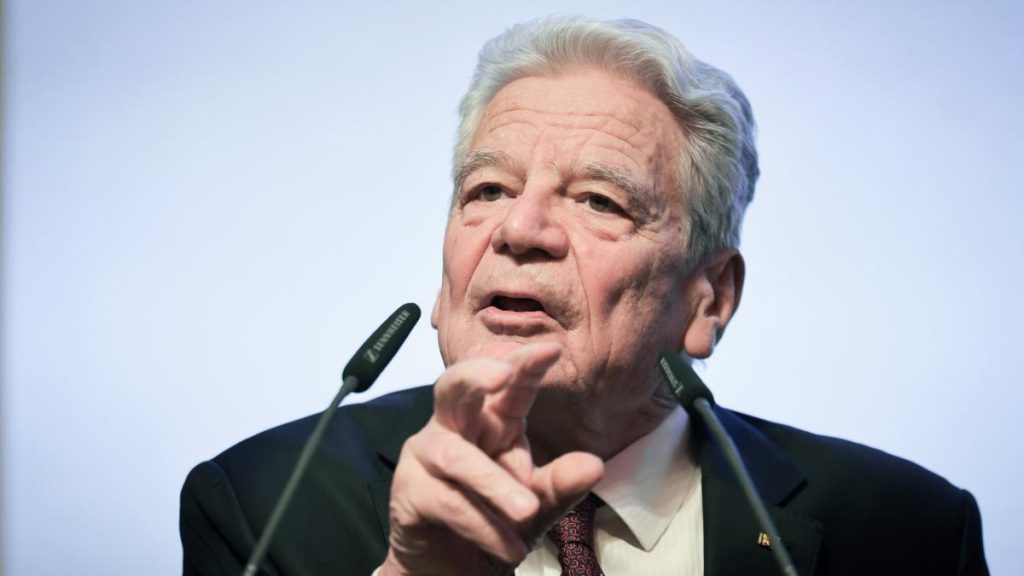Former German President Joachim Gauck has issued a warning about the ongoing conflict in Ukraine, urging Germany to do more to support the country in its struggle against Russian aggression. Gauck emphasized that providing Taurus cruise missiles to Ukraine would not constitute direct involvement in the war. He also called on the CDU to reconsider its policy of not cooperating with the Left party, noting that failure to assist Ukraine could have serious consequences for European peace and stability.
Gauck stressed that Germany has the capacity to offer greater assistance to Ukraine, highlighting that other European nations with similar economic and population sizes, such as the Baltic states, have made more significant contributions. He cautioned against complacency, warning that failing to support Ukraine in defending itself could undermine the entire European peace order, with far-reaching implications for other countries. Gauck urged against excessive fear and reluctance to act, pointing out that Russian President Vladimir Putin exploits German fears to his advantage.
Despite Chancellor Olaf Scholz’s opposition to providing Taurus cruise missiles to Ukraine, Gauck argued that such a move would not constitute German involvement in the conflict, as acknowledged by international law experts and military analysts. He criticized excessive fear and anxiety in German politics, stressing the importance of not succumbing to intimidation tactics such as Putin’s threats of nuclear weapons. Gauck also called on the CDU to reconsider its stance on cooperating with the Left party, cautioning that the rise of far-right parties like the AfD could necessitate unexpected political alliances.
Gauck acknowledged that he is not a supporter of the Left party, but noted that many members within the party defend democratic principles. He emphasized the possibility of revising outdated political stances, such as the CDU’s policy of not working with the Left party, in response to evolving political landscapes. The former president pointed to Thuringia’s Left party leader Bodo Ramelow as an example of successful political coalition-building, suggesting that new alliances may become necessary in response to shifting political dynamics. Gauck also criticized the new BSW party led by Sahra Wagenknecht, describing it as a group of left-wing populists with a pro-Putin agenda.
In light of upcoming elections in several eastern German states and the potential strength of the AfD, Gauck warned of the challenges posed by far-right political movements. He stressed the importance of preventing situations where unlikely political alliances are forced to form in order to counter the rise of extremist parties. Gauck’s call for greater support for Ukraine and his plea for a reconsideration of political alliances reflect his concerns about the broader implications of the conflict in Ukraine and the need for proactive, strategic decision-making in German politics.


